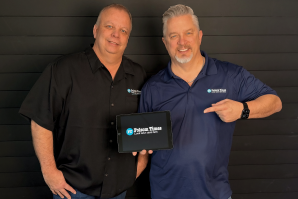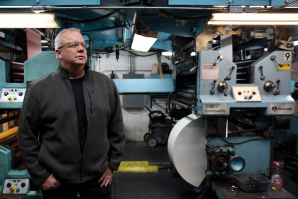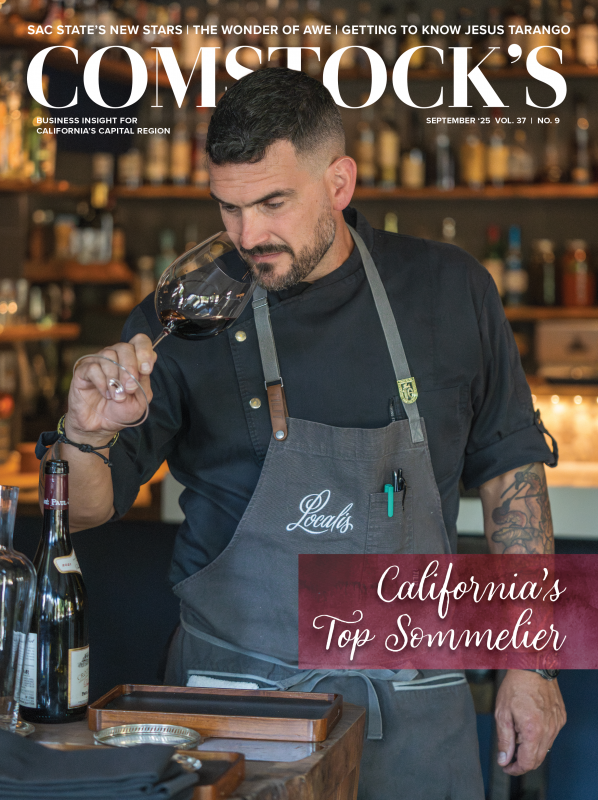Many of us enjoy listening to Capital Public Radio’s news and music stations as well as watching our PBS-TV affiliate, KVIE. The programming on both demonstrates qualities of professionalism, timeliness and general good taste.
Many of us, at least at first, were concerned that their existence was being threatened by the cutting of $1.1 billion for the Corporation for Public Broadcasting, a move that ended all federal support for NPR, PBS and their member stations. Then there was a subsequent announcement that the CPB itself would shut its doors.
But both stations have demonstrated determined resiliency. The guest editorials and online posts by David Lowe, KVIE-TV’s general manager, explain his station’s mission and its importance to the various communities it serves. Naturally, he’s issued calls to action to listeners and companies to step up and help keep them alive. Lowe made it clear his station doesn’t survive exclusively on federal dollars, and actually that’s only a fraction of the station’s annual budget. Meanwhile, Capital Public Radio issued statements clarifying it relies on zero federal dollars.
Taken together, this reflects an admirable pliability coupled with toughness on the part of both stations — and says something very positive about the Capital Region, which is stepping up to support them.
Actually, I can understand why a majority in Congress decided to pull the plug, via the recissions tactic, on a funding source that grew almost exponentially since the inception of public broadcasts. Public television began life as “educational” TV. It featured programs one couldn’t find anywhere else, teaching us about history, the arts and even British culture, which so many Americans have always felt was a somewhat elevating experience.
Then came cable television, and eventually, streaming and podcasting — media that provided us with the History Channel, the Arts & Entertainment station, broadcasts from the British Broadcasting Corporation and much more. We’ve had a buffet from which to select learning experiences, cultural entertainment, classic plays and classical music.
In short, we no longer needed to rely on a single source, like CPR or KVIE, to bring us the varied experiences we hungered for. Times do change, don’t they?
Public radio and public television have been with us in one form or another for more than a century (radio) and three-quarters of a century (TV). Both have grown from humble beginnings as community-oriented, low-budget enterprises into entertainment and news giants — a success we certainly don’t begrudge them. Many public stations, radio and TV alike, are also emergency communication resources (for which KVIE has won national recognition).
After the Congressional vote to rescind $9 billion in already-allocated funds — about $7 billion of which was from foreign aid and most of the balance from public broadcasting — Katherine Maher, the CEO of National Public Radio, called the cut an “irreversible loss,” saying it would cause “an unwarranted dismantling of beloved local civic institutions.” She also said the move was one that “disregards the public will.” Not surprisingly, Maher’s counterpart at PBS, CEO and President Paula Kerger, also said the move to cut public broadcasting “goes against the will of the American people.”
I guess I’m wondering in both cases how these executives perceive our collective “will.” We do know that, like him or hate him, Donald Trump was decisively elected president last November and made no secret of the things he wanted to start cutting from the country’s budget. Then he started doing it.
Is anyone really surprised that this included funding for broadcast networks whose news content he felt was not only very biased, but was heavily skewed against him and his followers? Call me old fashioned, but I don’t believe any news media should be skewed either one way or the other.
I’ve also always taken with a grain of salt the notion that public TV and radio are “commercial-free.” They both run advertising — only they call it “underwriting.” Other than the tone and length, why is it different to begin a paid spot with the words “We get support from” or “This show is brought to you by”?
I personally don’t think the loss of federal funding for public TV and radio stations signals the end of free speech or, as some are putting it, the end of the world as we know it. Do you?
Finally, I will certainly admit that if this magazine ever had the chance to ask the public for funds, or the opportunity to write federal grants establishing why we’re important to our customers, we all may have considered it. For now though, and for the foreseeable future, we’ll earn our keep the old-fashioned way — by creating a product month-after-month that we hope readers will continue to enjoy and advertisers will continue to support. And we’ll never interrupt a story you’re reading before its conclusion to solicit your generosity. Consider that our pledge.
What do you think?
Winnie Comstock-Carlson
President and Publisher
–
Stay up to date on business in the Capital Region: Subscribe to the Comstock’s newsletter today.
Recommended For You

The Man Who Buys the Capital Region’s Dying Newspapers
Paul Scholl has accumulated 18 print newspapers in under two decades
Paul Scholl started a newspaper about two decades ago to promote his services as a hospice chaplain. Now he brings relief to papers on their deathbeds. How did Scholl come to not only own 18 papers but to make them financially sustainable?

Local Journalist Receives $100,000 Grant to Support Hmong Daily News
Website covers an ethnic community that comprises about 1 percent of the Capital Region’s population
A coalition of funders is trying to save journalism, and one of the first to receive their aid is a little-known website serving a small ethnic community in Sacramento. Eighteen Press Forward grantees were based in California with only one in the Capital Region: Hmong Daily News.

Local News Is Breaking. Can These Websites Fix It?
These local news sites are responding to the decline in legacy print newspapers
Many digital news outlets like the Folsom Times have popped up in the Capital Region over the past two decades. Are they destined to cease like the newspapers that came before them, or is it possible to build a local newsroom financially sustainable enough to last?

Gold Country Media Defies Newspaper Naysayers
For six Northern California publications, the alleged death of print is a very big typo
Award-winning Gold Country Media keeps pressing on in a
digital-dominated world.





